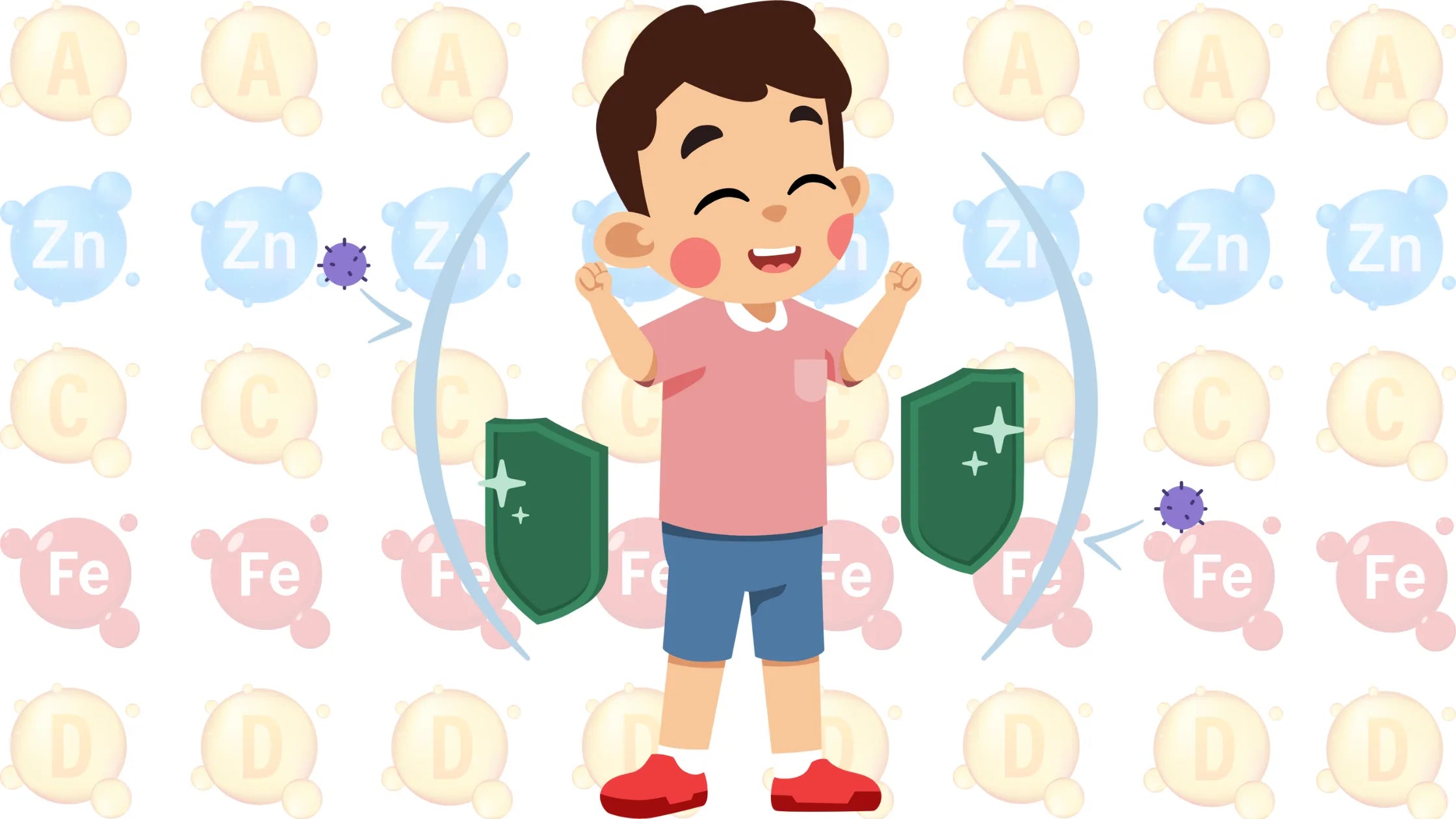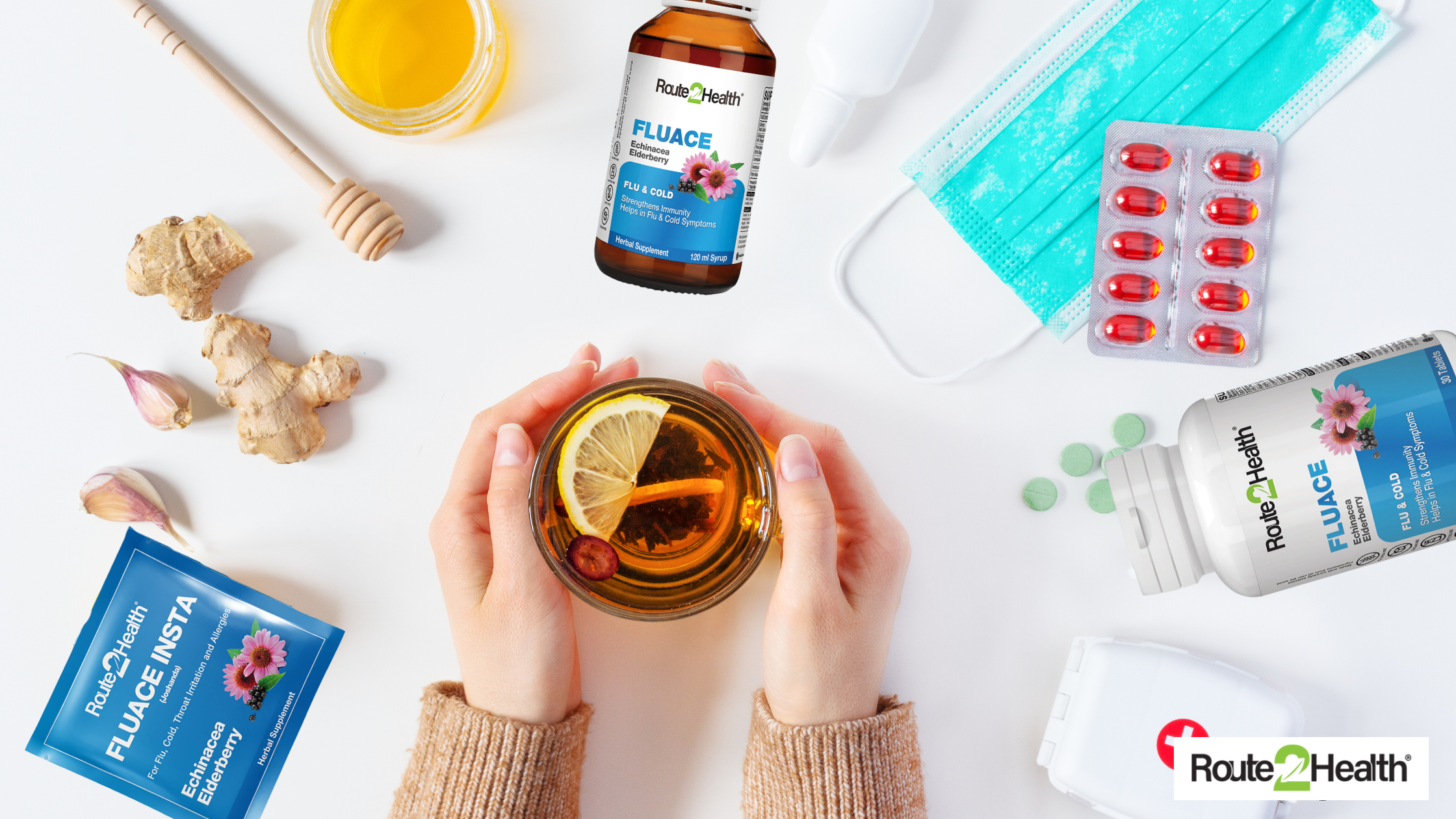As parents, we all want to make sure that our children grow up healthy, strong and full of life. In this pursuit, we often leave no stone unturned. While we do whatever we can, we can fall short too. Due to our shortcomings, many of us often fail to focus enough on our children’s nutrition. Good nutrition is of utmost importance to make sure that our kids grow healthy and happy. A well-balanced diet not only gives our kids the energy to grow but also micronutrients to help them maintain optimum health. So, let’s explore some key growth vitamins that you must include in your kid’s diet to ensure that they reach their full growth potential.
Importance Of Vitamins For Kids
Vitamins are micronutrients that play critical roles in many natural processes and promote growth in kids. These nutrients are essential for youngsters who are growing and developing at a quick rate. They help with immune system function, bone strength, skin health, and cognitive growth. Because the body cannot synthesise most vitamins, children must acquire them from their diet. However, due to particular eating habits or dietary limitations, children may not always get enough of these important nutrients.
According to a study published in the National Hospital Service (UK), the government advises providing daily vitamin supplements containing vitamins A, C, and D to all children between the ages of six months and five years.
Why Should Kids Take Multivitamins? The Benefits of Children’s Multivitamins
The Essential Growth Vitamins For Kids
1. Vitamin D (The Sunshine Vitamin)
Why is it essential?
Vitamin D is critical for calcium absorption, which is necessary for building strong bones. Research in the National Library Of Medicine says without enough vitamin D, children are at risk of developing weak bones or conditions like rickets, where the bones become soft and deformed. This vitamin also plays a role in immune function, ensuring that children don’t fall sick frequently and also promotes growth in kids.

How do you make sure your child gets enough of it?
Sunlight is the best source of vitamin D. However, due to evolving lifestyles, many youngsters may not receive adequate sun exposure. Vitamin D-rich foods include fortified milk, eggs, and seafood such as salmon and tuna. In some circumstances, a paediatrician may offer a vitamin D supplement.
2. Vitamin A (For Vision & Growth )
Why is it essential?
According to the World Health Organization, vitamin A is
- Essential for normal vision and eye health, particularly night vision.
- Promotes the growth of cells and tissues, such as skin and mucous membranes.
- Plays a role in normal function and maintenance of the heart, eyes, lungs, and other organs.
- It strengthens the immune system, allowing youngsters to fight infections more efficiently.
How do you make sure your child gets enough of it?
Sources of vitamin A include carrots, capsicum, papaya, broccoli, mango sweet potatoes, spinach, and eggs. Dairy items such as milk and cheese are great sources of calcium for young children.

3. Vitamin C (Immunity booster & Tissue Repair)
Why is it essential?
Vitamin C strengthens your body’s defences and aids in fighting infections, making it essential to children. It also helps to heal tissues, which is particularly essential for children whose bodies are continually growing and expanding. According to the National Institute Of Health, vitamin C aids in the absorption of iron, another essential ingredient for growth.
How do you make sure your child gets enough of it?
Vitamin C-rich fruits and vegetables include oranges, strawberries, kiwi, and bell peppers. Because vitamin C is water-soluble, children must consume adequate amounts of it on a daily basis.

4. Vitamin Bs ( Energy Booster)
Why is it essential?
Research says the B vitamins—specifically, thiamine, riboflavin, niacin, pyridoxine, and cobalamin—are all essential for energy production, brain function, and red blood cell development. Vitamin B12, in particular, is required for neurological development and DNA synthesis, making it an important nutrient during a child’s growing period.
How can you get it?
Vitamin B12 is commonly found in animal products such as meat, dairy, and eggs. For vegetarian children, fortified cereals and supplements may be required. Other B vitamins are present in whole grains.

5. Vitamin E ( Antioxidant Protector)
Why is it essential?
Vitamin E plays an essential role in growth. Vitamin E works as an antioxidant, defending cells against oxidative harm. American Research says It also strengthens the immune system, allowing youngsters to battle infections more effectively. Furthermore, vitamin E promotes skin health, which is especially important during the rapid growth phases of childhood.
How can you get it?
Vitamin E can be obtained from nuts, seeds, and vegetable oils. Leafy green vegetables and fortified cereals are also excellent sources.

How to Ensure Enough Of The Growth Vitamins For Kids?
- Balanced Diet: Make sure your child consumes a range of fruits, vegetables, whole grains, and protein sources every day.
- Sunlight Exposure Encourage outside activities to ensure that your youngster receives adequate vitamin D from sunlight.
- Supplements It may be important to give a multivitamin supplement, particularly if your child is a finicky eater or has specific dietary limitations. You can either give Kids One Daily By Route2Heath which supports overall kid’s health.
Recommended Daily Intake To Promote Growth In Kids
Now that you know all about the essential growth vitamins for kids, you must know exactly how much of these nutrients your little ones need. Remember that too much and too little of these vitamins can compromise your child’s health. Furthermore, It is essential to note that the RDI for particular vitamins varies with different ages.
| Vitamins | 1-3 years | 4-8 years | 1-3 years |
| Vitamin A | 300 mcg | 400 mcg | 600 mcg |
| Vitamin C | 15 mg | 25 mg | 45 mg |
| Vitamin D | 400 IU | 600 IU | 600 IU |
| Vitamin B6 | 0.5 mg | 0.6 mg | 1.0 mg |
| Vitamin B12 | 0.9 mcg | 1.2 mcg | 1.8 mcg |
| Vitamin E | 6 mg | 7 mg | 11 mg |
Conclusion
A diverse diet rich in nutrients is vital to promote growth in kids and their development. Vitamins like A, D, C, E, and B play crucial roles in this process. You should try to provide your children with a well-balanced diet that includes these critical growth vitamins for kids. If your child has dietary limitations or concerns regarding their nutrition, talking to a doctor or a nutritionist can help.
Prioritising nutrition from a young age can help your child develop strong and healthy. This detailed overview emphasises the importance of vitamins in children’s development while also offering actionable information on dietary sources and recommended intakes.
FAQs
1. Which Vitamin Helps Kids Grow Taller?
While traits like height are usually genetically determined, many nutrients like calcium and vitamin D can help your child grow to their full potential.
2. Which Vitamin Is Necessary For Growth in Kids?
Vitamins like vitamin D, A, C and B-complexes, in conjunction with other nutrients like iron and calcium, are often necessary for optimum growth in kids.
3. What Can Stop a Child’s Growth?
Many factors, including an inadequate diet, lack of physical activity, medical issues, genetic conditions and mental stress, can hinder a child’s optimal growth.
4. What is the best time for kids to take vitamins?
Giving a multivitamin supplement to your kids after breakfast is usually the best way.
5. Which product is best for kids’ growth?
No single product can promise your child’s optimal growth. A healthy diet, with enough physical activity along with supplements like Kids One Daily for additional support, can help your child grow optimally.
























































